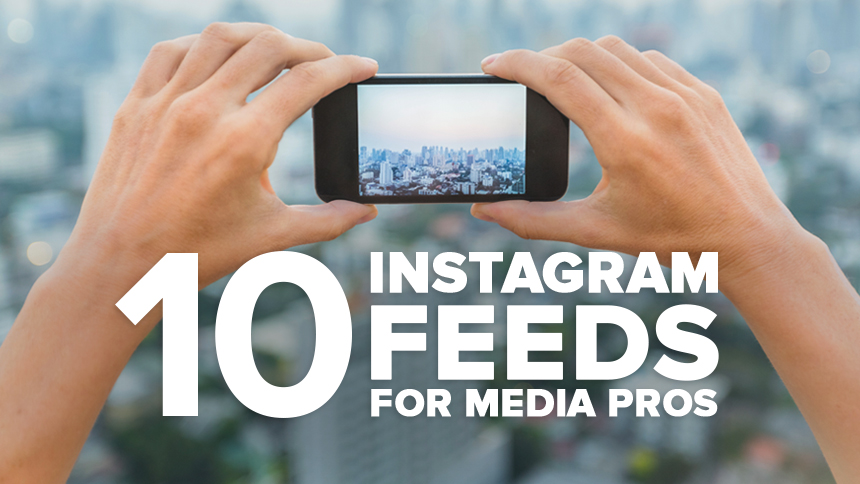Every editorial intern wants to stand out, but not everyone knows how to do it the right way. We talked to three editors to get the inside scoop on how to make a positive impression.
You want your name to come up in discussions over who to hire after graduation, not when editors pass around intern horror stories. Whether you’re interning at a newspaper, magazine or website, let these editors steer you in the right direction.
Also on Mediabistro


1. Be proactive.
The best interns are always the ones who take initiative on tasks. If you’re organizing back issues or updating spreadsheets while the rest of the interns are scrolling through Instagram, your editors will take note!
2. Take that confidentiality agreement seriously.
Perhaps the best time to be proactive is when your supervisor takes on the role of mentor. If an editor takes the time to teach you something new, demonstrate right away that you understood what she taught you. Mandy Stadtmiller, editor at large of xoJane, once explained to an intern how she brainstormed story ideas. She was impressed when the intern responded immediately by brainstorming several ideas of her own using the same method. “I really notice when someone actually takes action and doesn’t just say, ‘Oh, thanks for the good advice,'” says Stadtmiller.
Sure, your internship might be glamorous and thrilling and give you access to lots of top-secret gossip, but this isn’t The Devil Wears Prada and you’re not Lauren Weisberger. Confidential information—such as the company’s upcoming stories, internal metrics and yet-to-be-revealed partnerships—should never get out. And even if you discover you hate your internship, you should never be openly negative about it while you’re still interning there.
“We had an intern who was tweeting about her internship inappropriately on her personal Twitter account,” says Stephanie Kaplan Lewis, CEO and editor in chief of Her Campus, an online magazine for college women. “She was complaining about projects she had been assigned, revealing details of upcoming programs we were running that were still confidential, and tweeting rude comments about her fellow interns. Needless to say this is unacceptable!”
3. Make your editor’s priorities your priorities.
If you’re lucky enough to intern at a place that encourages you to pitch and write your own work, that’s fantastic. But you should always complete tasks assigned by your editor before moving on to your own projects—this rings doubly true for time-sensitive tasks. If you’re working on a project for an editor and it’s not done yet, but you send him an email with three pitches you want to write, he probably won’t be pleased.
“It’s not to discourage or dissuade anyone from writing about what they’re passionate about or taking a side project,” says Taylor Trudon, youth special projects editor at MTV News. “But it’s also important to keep your editor’s priorities in mind.”
Keep track of what needs to be done when by keeping a to-do list on a notepad by your desk.
4. Have good manners and a good attitude.
“The majority of interns that I’ve seen just aren’t that great, because they’re like little divas and you have to negotiate around their egos,” says Stadtmiller.
Ouch. At least Stadtmiller is honest. Every interaction with your editor should be positive and polite, from saying hello in the hallways to taking on every assignment with a smile. Some tasks are going to be tedious, time-consuming and just plain not fun. But when you complete a boring task with as much gusto and care as an exciting one, that makes you look like a rockstar—even if you don’t feel like one.
5. Proofread everything.
Excellent communication skills are important no matter which field you’re in, but they’re even more crucial if you’re a media intern. Whenever you turn in an article, internal research or even an email, proofread your work carefully for spelling, grammar and AP style (or whichever style guidelines your company follows).
Even basic communications with you and your boss should be written with care. “If you send me an email that has spelling or grammatical errors, it’s going to impact my perception of you and your work,” says Kaplan Lewis.
Typos and other mistakes make you look lazy, so double- or even triple-check every word you write. One simple way to catch errors? Read your work aloud. If there’s a problem, you’ll notice it right away.
6. Learn to take constructive criticism—and then move on.
The media industry is tough, and it’s easy to feel overwhelmed when you don’t get positive feedback right away. If your editor returns your blog post with a dozen edits or asks you to pitch ideas in a different way, don’t let it bother you.
“When an editor gives you feedback, it’s important to be able to take it in stride and know that it’s nothing personal against you or your writing,” says Trudon. “They’re taking their time away from whatever they’re doing to help you improve.”
If anything, take constructive criticism as a compliment. Someone cared enough about your personal growth and success to break away from her work to improve yours. That’s a big deal!
7. Observe the office culture.
Every office works a little bit differently, and so it’s important to adapt to your new surroundings every time you start a new internship. During your first few days and weeks, try to gain an understanding of who does what and how people prefer to work.
“Take a moment to breathe and observe the culture so you can get a handle,” says Stadtmiller. “Then you start to see this editor seems to be in charge of this, and this editor seems to enjoy making small talk, and this editor prefers to work with her headphones in. Take a day or two to assess the culture before you start steamrolling people with your ideas.”
Even if you have the best idea in company history, it will be hard to have it succeed if you talk to the wrong person or communicate it in a less favored way. Watch first, then make your move.
8. Google the small things, ask about the big things.
Internships can be scary when you feel like there’s so much you don’t know. But as helpful as an intern fairy godmother would be, you don’t want to run to your editor’s desk with every question. Here’s your rule of thumb: Google the small things, ask about the big things.
Google will be your best friend for small issues: learning more about a journalism term you’ve never heard before, double-checking to see if your source should be quoted as John or Jon, and seeing if your company has previously covered a particular topic. But when confronted with a major question, like how you should approach a major project or what a certain program or piece of software is used for, ask your editor.
“Ask questions if you don’t know,” says Trudon. “A lot of interns are either scared or embarrassed, but it’s better to ask than to make a mistake, backtrack and have to clean up a big mess.”
Remember, the best interns make their editors’ lives easier, not harder. If you can do that, you already have a gold star in their book.

.png)








